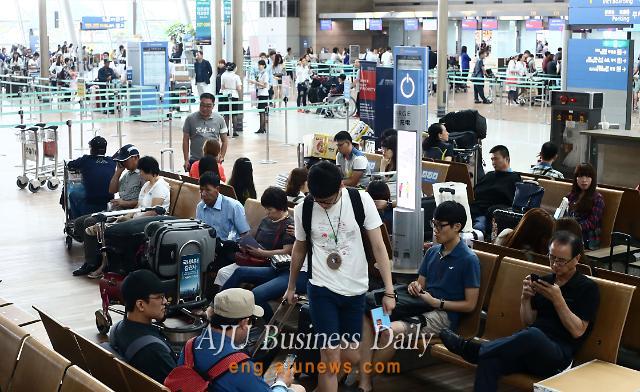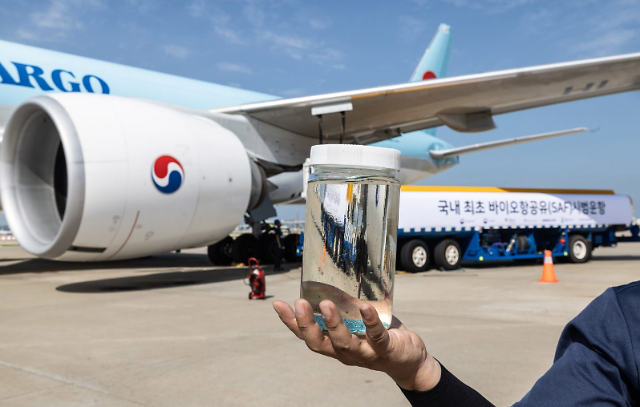
[Aju News DB]
South Korea has set tougher safety rules for domestic budget airlines as public complaints grew over their sloppy operations and delays caused by a series of mechanical flaws and human errors.
Domestic low-cost carrier (LCCs) have been investigated for a series of mishaps, the Ministry of Land, Infrastructure and Transport said, warning of stiff penalties for violators of new rules.
A Jeju Air jet with 150 passengers lowered its altitude rapidly because the pilot failed to turn on the cabin air supply switch after takeoff in December last year. A Jin Air plane with 160 on board returned to Cebu in the Philippines on January 3 after a problem was detected in its cabin doors.
"New guidelines will be implemented to bolster the safety of flight by domestic low-cost carriers," the ministry said in a statement, accusing them of spending less on aviation safety and of failing to fulfill duties on safe flight.
From now, low-budget carriers will be required to have more pilots, maintenance staff, reserve planes and components on standby. Currently, each budget carrier has 5.5-5.9 sets of flight crew for each plane, and 9-11 maintenance personnel, with almost no plane in reserve.
Along with two premium carriers, Asiana and Korean Air, South Korea now has five budget carriers with another ready to start services in the first half of this year. Two more plan to fly small jets capable of carrying some 50 passengers between regional cities later.
Ministry data showed South Korea's total air passenger traffic rose 9.8 percent year-on-year to 89.4 million in 2015, helped by a rapid rise in the number of passengers using LCCs. The transport ministry predicted LCCs are expected to carry more than 30 million passengers this year, compared to 24.2 million last year.
The market share of LCCs also increased from 11.5 percent in 2014 to 14.6 percent last year on international routes, while they carried 54.7 percent of total passengers on domestic routes last year, up from 50.7 percent a year earlier.
South Korean LCCs are now eager to increase international flight routes or raise more money for business expansion to cope with an aggressive challenge from foreign competitors.
But ministry officials promised to strengthen the screening of any requests for new LCC flight routes.
The ministry also blamed LCCs for contributing much to a standstill this week at the airport of South Korea's southern resort island of Jeju.
The Jeju airport was reopened Monday after a rare and sudden snowstorm forced its closure for two days and turned its lounge into a temporary shelter for travellers.
Tens of thousands of visitors had been stranded across the island, including 2,000 who used plastic mats, blankets or boxboard to camp inside the airport's lounge, waiting for ticketing, as the lack of equipment delayed the clearing of its snow-covered runways.
Turbulence was caused by the country's coldest weather in more than a decade, but transport officials admitted the airport in Jeju has not been prepared well for such a heavy snowfall.
On Thursday Jeju Air, the country's largest budget carrier with a fleet of 20 planes. and other LCCs issued apologies for causing inconveniences to passengers at the airport.
Officials said LCCs had failed to properly notify stranded passengers on boarding procedures after runway operations resumed at the Jeju airport.
They said that LCC operators had no automatic notification system in place to inform passengers on delays and alternative planes, forcing passengers to stay overnight inside the airport.
Charles Lim
아주경제 임장원 기자 = cwlim34@ajunews.com




